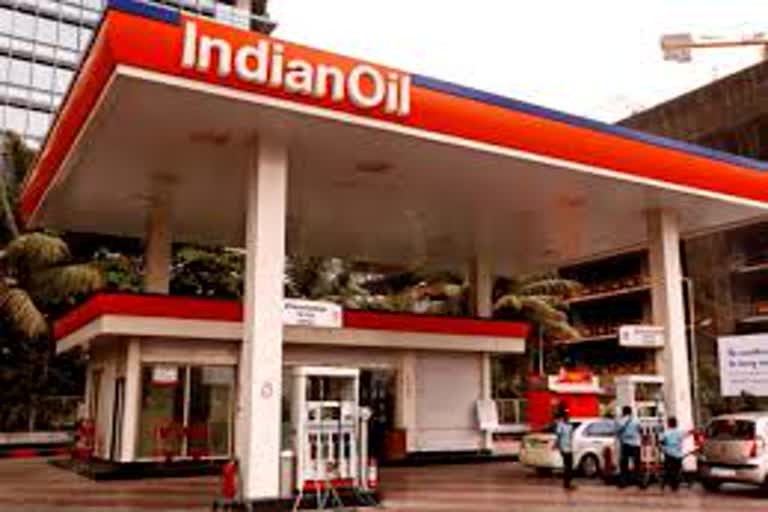New Delhi: A high-level expert committee has suggested scrapping of the Rs 2,000 crore investment norm for setting up petrol pumps to free up fuel retailing but wanted retailers to necessarily set up outlets in rural areas as well.
At present, to obtain a fuel retailing license in India, a company needs to invest Rs 2,000 crore in either hydrocarbon exploration and production, refining, pipelines or liquefied natural gas (LNG) terminals.
The five-member expert committee on easing of fuel retailing licensing rules in its report said the requirement of authorisation from the central government to market petrol and diesel should continue as they are "sensitive, essential and safety-related commodities" and their supply requires "some degree of control" to "ensure compliance to safety, customer service, and universal service obligations".
It, however, wanted the Rs 2,000 crore investment requirement for a retailing license to be done away with.
"For the companies operating in the oil and gas sector who have made or propose to make large investments in this sector, marketing right for transportation fuels does not appear to be an incentive.
Also read: US rules out sanction exemptions to countries from Iranian oil import
Hence, the continuation of extant investment criterion for marketing authorisation to only the oil and gas companies is likely to deprive the market of participation from companies which may not be making huge investments in oil and gas sectors but may have varied offerings to make the market more customer-oriented," it said.
Recommending that the investment criterion for the grant of marketing authorisation should be done away with completely, it said this should be replaced with a norm that only filters the applicants from the perspective of their credentials/ability to perform.
"The same may be supplemented with penalty clauses along with a bank guarantee that may be invoked in case of failure to perform as per submitted plan," the report said, adding a retail license should be contingent upon the firm setting up of 5 per cent of retail outlets in specified remote areas by 7th year of operation.
A company with a net worth of Rs 250 crore should be allowed to set up petrol pumps in the country as well as do bulk sales.
Failing to set up a minimum of 5 per cent of petrol pumps in identified remote areas will attract a penalty of Rs 3 crore per pump.
But firms can at their choice deposit Rs 2 crore per remote area pump at the time of licensing to get an exemption from the clause, the report said.
State-owned oil marketing companies - Indian Oil Corp (IOC), Bharat Petroleum Corp Ltd (BPCL) and Hindustan Petroleum Corp Ltd (HPCL), currently own most of 64,624 petrol pumps in the country.
Reliance Industries, Nayara Energy - formerly Essar Oil - and Royal Dutch Shell are the private players in the market but with limited presence. Reliance, which operates the world's largest oil refining complex, has less than 1,400 outlets.
Nayara has 5,128 while Shell has just 145 pumps.
BP plc of UK had a couple of years back secured a license to set up 3,500 pumps but hasn't yet started doing so.
Last year, French energy giant Total in a joint venture with Adani Group announced plans to set up 1,500 petrol pumps in the next 10 years.
IOC is the market leader with 27,702 petrol pumps in the country, followed by HPCL with 15,440 outlets, and BPCL with 14,802 fuel stations.
"Apart from the application fees, the company applying for retail authorisation would be required to specify the year-wise number of retail outlets it proposes to set up subject to a minimum of 100 retail outlets in the next seven years from the year of grant of authorisation in the application itself," the panel said.
The report proposed the collection of a bank guarantee at the rate of Rs 3 crore per remote area petrol pump as a security towards the company meeting its universal service obligation as per timelines.
"If the company fails to commission remote area RO (retail outlet) as per approved timelines, Government would encash bank guarantee equivalent to Rs 3 crore per remote area RO corresponding to shortfall in commissioning vis-a-vis targets for that year within 3 months of the end of that year," it said.
However, if the company does not want to set up any remote area RO, it may be given an option to pay Rs 2 crore per remote area petrol pump upfront at the time of application itself.
"In view of much-relaxed entry barriers, it is expected that the market would witness participation from a large number of national and international market players thereby providing the customer with more choices and better value for his money," the report said.
The expert committee was set up in October last year and was asked to "look at various issues related to the implementation of existing guidelines for grant of the marketing authorization of market fuels - petrol, diesel, and aviation turbine fuel (ATF)".
The panel includes renowned economist Kirit Parikh, former oil secretary G C Chaturvedi, former Indian Oil Corp (IOC) chairman M A Pathan, IIM Ahmedabad Director Errot D'souza and Ashutosh Jindal, joint secretary in the ministry of petroleum and natural gas.
Comments from stakeholders have been invited on the committee report before finalising a new policy.



